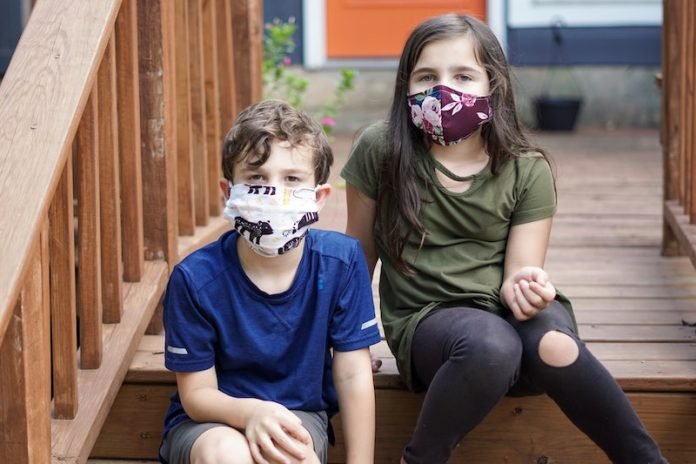
In a new study, researchers found that children and young people are around 40% percent less likely to be infected than adults when exposed to someone with the virus.
The study was led by UCL researchers.
In this study, the team updated their previous systematic review and meta-analysis to encompass more than 13,900 studies, to understand how likely it is that children catch COVID-19 and whether they pass it on to others.
In total the studies included 41,640 children and young people (defined as under 20) and 268,945 adults: 18 studies were contact-tracing studies, which included three based in schools, and 14 were population-screening studies.
The analysis showed that children and young people (aged under 12-14) had 44% lower odds of catching SARS-CoV-2, the virus that causes COVID-19, from an infected person, compared with adults (aged over 20).
The findings suggest children under 12 to 14 years appear much less likely to contract COVID-19 from infected others.
The findings support the view that children are likely to play a smaller role in transmitting the virus and proliferating the pandemic, although considerable uncertainty remains.
However, the study provides no information on the infectivity of children, i.e. the level at which children can transmit the virus once infected.
The researchers suggest that children—and groups of children in schools—play only a limited role in the spread of this infection but at this stage the evidence is weak.
More research on the role of children in the transmission is urgently needed.
One author of the study is Professor Russell Viner (UCL Great Ormond Street Institute of Child Health).
The study is published in JAMA Pediatrics.
Copyright © 2020 Knowridge Science Report. All rights reserved.



